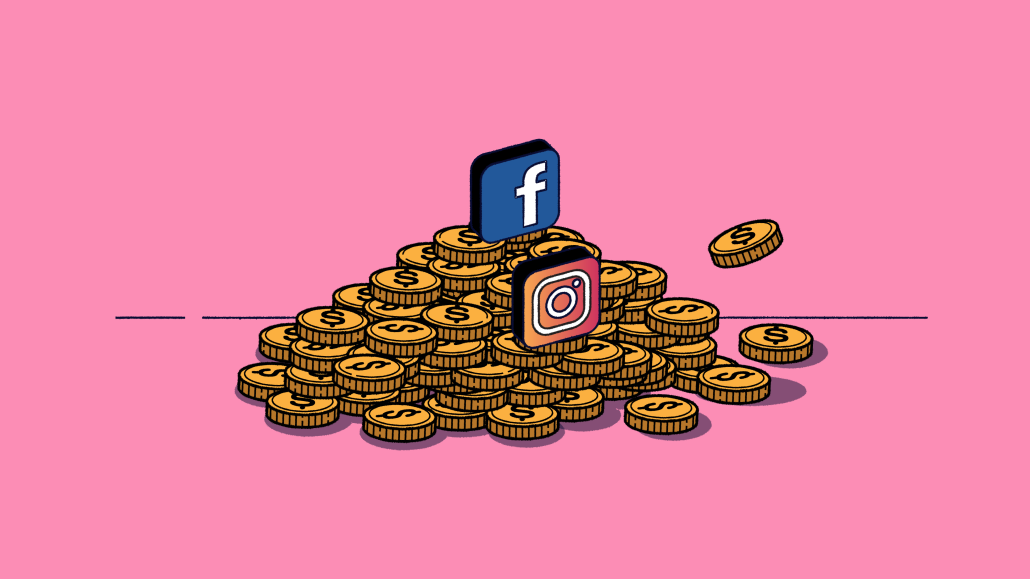Save 50% on a 3-month Digiday+ membership. Ends Dec 5.
The Rundown: What media agency execs privately think about Meta/Facebook as a billion dollar ‘deaf to give-and-take’ client

As a loyal reader, your feedback is vital to Digiday as we continue to evolve our products and coverage. Let us know your thoughts with this quick survey and you’ll be entered to win one of five $25 Amazon gift cards.
Arguably the biggest media account still in play from this year’s incarnation of Mediapalooza, Facebook (under its new parent company name Meta) landed its billion-dollar media business on Tuesday at Publicis Groupe’s Spark Foundry media agency, after about seven months of being in review.
The remit will include work for the Facebook, Instagram, WhatsApp and Messenger platforms — and represents about $1 billion in media spend. According to a Meta/Facebook statement, “Spark Foundry will be responsible for strategic thought leadership, media innovation, planning and investment, cross-channel approaches, tools, tech and operations.”
Spark Foundry passed Digiday’s inquiries to Meta and a A Meta/Facebook representative offered up the following statement: “We are pleased to announce that Spark Foundry will be our new global media planning and buying partner across Meta’s brand portfolio.”
As has been widely discussed, several holding company rivals either were dropped from consideration (Havas) or took themselves out of the running (WPP/GroupM/Mindshare) for Meta/Facebook’s business. Dentsu was the other holding company still in the running until the end.
Here are a few things that merit consideration from some of the agencies that passed or were passed over in the review:
- How do you say, “Careful what you wish for” in French? Privately, agency executives say the price of winning Meta/Facebook was simply too steep, and they breathed a sigh of relief once the company either passed or they dropped out.
- Among the advertiser’s demands were preferential rates on pricing — better than other major clients were getting — baked into the contracts. If those contracts were leaked, the damage done to the winning media agency could be devastating in losing other clients. “They were deaf to give and take of negotiation,” confided one executive who spoke on condition of anonymity. The Meta representative said Facebook disagrees with that characterization.
- Meta/Facebook was also said to be asking the winning holding company to steer client business towards their walled garden, which represented a major conflict of interest. One agency executive was particularly bothered by the “balance of trade” expectation, with Meta asking for an increase in spend from the winning holding company’s other clients. The Meta/Facebook representative refuted this point, saying, “We don’t influence the business decisions of our partners’ clients.”
- Facebook is also arguably the most influential digital platform in the world that every agency spends clients’ dollars on, but isn’t the only one that’s also a major advertiser. Google, Amazon and TikTok are platforms that advertise but are also appealing to marketers because of their reach. One exec said none of those platforms were as heavy-handed in their demands as Meta has been.
- Though details were scant, other agencies said Meta/Facebook was interesting in “grading its own homework,” refusing to submit to audits from the winning media agency to check on effectiveness and appearing in responsible media.
- Several agency execs told Digiday there’s a noticeable air of relief in their agency because other clients were questioning where the agency’s loyalties would land. “Our clients are challenging us to move their dollars elsewhere” in part because of Facebook’s behavior and recent public relations challenges. Said another agency source, clients were asking “Are you meeting an obligation to me or to Facebook when you’re recommending I spend there?”
- One agency CEO also said to take note that more and more of the company’s advertiser base is made up of small to medium sized businesses rather than leading marketers.
Ad position: web_incontent_pos1
More in Media

What publishers are wishing for this holiday season: End AI scraping and determine AI-powered audience value
Publishers want a fair, structured, regulated AI environment and they also want to define what the next decade of audience metrics looks like.

Digiday+ Research Subscription Index 2025: Subscription strategies from Bloomberg, The New York Times, Vox and others
Digiday’s third annual Subscription Index examines and measures publishers’ subscription strategies to identify common approaches and key tactics among Bloomberg, The New York Times, Vox and others.

From lawsuits to lobbying: How publishers are fighting AI
We may be closing out 2025, but publishers aren’t retreating from the battle of AI search — some are escalating it, and they expect the fight to stretch deep into 2026.
Ad position: web_bfu



